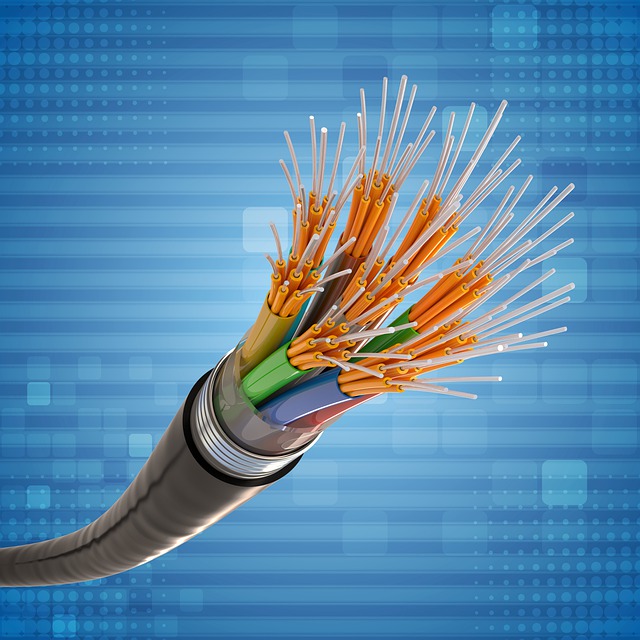Are you frustrated by slow, costly, or unreliable internet service? Many people are. A study on customer satisfaction in the US found that Internet service providers (ISPs) ranked second to last in the industry last year. While most households rely on cable for their internet access, the limited choices may soon change with the introduction of fast, low-latency 5G networks by mobile carriers.
Some individuals may find 5G home internet to be a feasible substitute for traditional broadband services. Telecommunication companies are starting to provide 5G home internet packages to recover the expenses of enhanced networks, which could potentially introduce significant competition for Internet Service Providers. If you are curious about what 5G home internet entails, how it compares to broadband, and whether it could suit your needs, we have the information you are looking for.
Special offer for Gear readers: Subscribe to WIRED for only $5 (a $25 discount). This subscription includes unlimited access to WIRED.com, comprehensive Gear coverage, and exclusive newsletters for subscribers. Your subscription helps support our daily work.
If you make a purchase through the links in our articles, we may receive a commission, which helps us sustain our journalism. To find out more, please read.
Text:
Understanding 5G Technology
5G: The Next Generation of Mobile Technology
5G is the latest wireless standard in mobile technology, standing for fifth generation. In recent years, mobile carriers have been introducing this new generation, expanding cellular networks with faster speeds, lower latency, and increased capacity for multiple devices. This advancement utilizes previously unused high-frequency radio waves to enhance connectivity. Explore our detailed guide for more information on the benefits and features of 5G.
What is 5G Home Internet?
5G home internet serves as an option to the traditional broadband service. In this setup, instead of having a cable connection, your home connects wirelessly to the 5G cellular network using a fixed receiver placed either inside or outside the house. Similar to how you use a SIM card for your phone service, 5G home internet also requires a SIM card and a service contract. While utilizing this service, you will still need a modem and a router to process the incoming signal, convert it into Wi-Fi, and distribute it throughout your home.
What Are the Advantages of 4G Home Internet?
4G LTE home internet services are already available with some carriers. Some carriers offer a combination of 4G and 5G internet options. Both 4G LTE and 5G require a receiver, but 5G enables faster speeds and lower latency. While theoretical speeds for 5G can exceed 10 Gbps with just 1 millisecond of latency, speeds around 1 Gbps are more common in real-world usage. A speed of one gigabit is generally sufficient for 5G to effectively compete with traditional broadband services. On the other hand, 4G LTE typically offers speeds maxing out at 100 Mbps, but users often experience slower speeds in practical situations.
#5G Home Internet vs Broadband: Which is Better?
No, it really depends
If your home is connected with fiber optic cable, you can have fast wired internet. However, if you are using copper cable, your internet speed might be slower. The speeds you receive are also influenced by how close you are to an exchange and the level of internet demand in your neighborhood. Although some people do not have cable internet, rural areas generally lack good 5G coverage. In cases where 5G coverage is strong but traditional internet services are subpar or expensive, opting for 5G home internet could be a better solution.
The Benefits of 5G Home Internet Service
5G home internet offers several benefits compared to traditional wired broadband, with three key advantages:
– Installation of 5G home internet is simpler as it does not require a physical cable. Users can often set it up on their own without the need for a technician visit.
– Areas with good 5G coverage typically offer fast internet speeds, much faster than traditional copper cables.
– 5G home internet service may be more affordable than wired internet, with some providers offering discounts for adding it to an existing mobile plan.
The Disadvantages of What?
– 5G home internet has both advantages and disadvantages.
– The following are some of the potential drawbacks of 5G home internet:
– Coverage for 5G home internet is limited, especially outside of cities.
– To get the best results, you'll need a receiver with a clear line of sight to a 5G cell site or tower. This might require attaching an antenna outside because 5G signals struggle to penetrate walls and can face interference.
– As more people adopt 5G and networks grow, your 5G home internet service could be impacted. During peak times, your internet may slow down or experience interruptions.
Can I Get 5G Home Internet?
It relies on your location and the 5G coverage available in your area. You can use the coverage map provided by nPerf to choose a carrier and view the coverage and download speeds. Most carriers only offer 5G home internet service in specific areas (mainly big cities), so you may also want to check with your preferred carrier by visiting their website.
Providers of 5G Home Internet
There are multiple choices available to individuals interested in obtaining 5G home internet service, but it is important to carefully review the details. Many providers offer a combination of 4G LTE and 5G services. The best deals are usually offered by carriers where you have multiple services, so if you already use their cell service, you may receive a discount on home internet. Below is an alphabetical list of US options to consider, although new services are consistently being introduced.
– AT&T Internet Air
– Starry Home Internet
– T-Mobile 5G Home Internet
– US Cellular Home Internet
– Verizon 5G Home Internet
If you reside in the UK, here are your choices:
– EE offers 4G and 5G mobile broadband
– National Broadband provides 5G service
– Three provides 4G and 5G home broadband
– Vodafone offers 5G and 4G broadband
Is 5G Home Internet Expensive?
5G Home Internet Pricing Comparison
5G home internet prices are fairly similar to traditional wired internet service, and in some cases, they may even be more affordable. The cost of 5G home internet plans typically ranges from $30 to $80 per month, depending on the desired speed and additional services. Some providers may offer discounts to existing customers or other promotional offers to entice new subscribers. Additionally, many 5G home internet services include perks such as unlimited data, no fixed contracts, and no equipment fees. Before signing up for a plan, it is crucial to carefully review all terms and conditions.


























